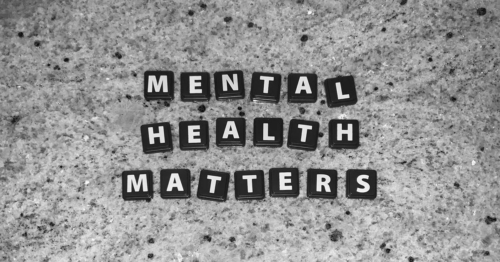
Table of Contents
Here’s How Setting Goals Can Positively Impact Your Mental Health
Written By: Charlie Health Editorial Team

Clinically Reviewed By: Dr. Don Gasparini
Updated: July 8, 2025
6 min.
Setting mental health goals increases the likelihood of emotional growth. Keep reading for a step-by-step guide on how to set and track mental health goals, plus a list of five mental health goals to try this year.
Learn more about our Clinical Review Process
Table of Contents
Improving mental health can feel like an abstract objective, but you’re more likely to achieve this outcome if you set and track mental health goals. Whether you’re trying to set better boundaries with a friend or prioritize self-care, mental health goals are a helpful tool for making strides in your emotional well-being.
Mental health goal setting, though, is not a substitute for professional help from a mental health provider. In fact, making mental health goals with the support of a mental health provider enables you to better identify appropriate mental health goals and provides you with guidance and support throughout the process.
Keep reading to learn more about the importance of goal-setting for mental health, how to track mental health goals, and examples of five mental health goals you can work on this year.

Achieving mental health goals is easier with support
At Charlie Health, our expert clinicians work alongside you to give you the tools to accomplish your goals and improve your mental health.
Why is goal setting important for your mental health?
Before we break it down step by step, it’s important to understand why mental health goal setting matters in the first place.
When you’re struggling with your mental well-being, it can feel confusing, overwhelming, and aimless.
Setting specific goals gives you focus, motivation, and a sense of control. Now let’s explore the key ways that mental health goals help you thrive:
1. Setting mental health goals builds confidence and motivation
When you work toward clear goals, you start to feel more accomplished and empowered. Even small wins boost your self-confidence and give you momentum to keep going.
Seeing evidence of your progress reinforces a positive mindset and helps you stay optimistic through tough times.
2. Mental health goals encourage self-awareness
Another big benefit of goal setting is how it forces you to reflect. You start examining your emotions, thoughts, and behaviors more closely.
This self-awareness helps you better understand your needs and what really matters for your emotional health.
3. Goal setting promotes resilience and proactive choices
Mental health goals also help you prepare for challenges. You can plan ahead, develop coping strategies, and strengthen your resilience.
Rather than reacting to stress, you’re making proactive choices that support your growth and long-term well-being.
4. Mental health goals improve overall quality of life
At the end of the day, setting goals empowers you to take control of your mental health journey.
This leads to a better overall quality of life — from healthier relationships to more satisfaction and joy in your daily routines.
Setting mental health goals: a step-by-step guide
If you want to set mental health goals for yourself, but don’t know where to begin, follow this step-by-step guide to help set meaningful and achievable mental health goals:
1. Start with a self-assessment
Begin by reflecting on the current state of your mental health. Take note of your emotions, stress levels, coping mechanisms, and areas you want to improve.
2. Identify areas of improvement
Pinpoint the areas you wish to work on. It could be managing anxiety, improving self-esteem, cultivating mindfulness, or fostering better relationships.
3. Set SMART goals
Create goals around these areas of improvement that are SMART: Specific, Measurable, Achievable, Relevant, and Time-bound. For example, “Practice mindfulness meditation for 10 minutes every morning for four weeks to reduce stress.”
Focus on a few key goals at a time to prevent feeling overwhelmed. You can always add new goals as you progress. If a goal seems daunting, divide it into smaller, manageable steps. This approach will make your journey more attainable.
4. Celebrate milestones
Acknowledge your successes, even if they are small. Celebrating milestones motivates you to continue the journey. Once you accomplish a mental health goal, take time to celebrate your progress and the positive impact it has on your life.
Just like any mental health tool, mental health goal-setting is most effective when done with the support of a mental health professional.
Talking with a mental health professional can help you better identify appropriate mental health goals and provide you with guidance and support throughout the process.

Five mental health goals to try this year
Here are five examples of mental health goals that you can try out this year:
1. Prioritize self-care
Make a commitment to prioritize self-care and dedicate time each day or week to engage in activities that you enjoy. This can include setting aside a specific amount of time each day or week to journal, spend time in nature, or practice a hobby that brings you joy.
2. Establish healthy boundaries
Setting and maintaining healthy boundaries is crucial for mental health. Identify areas in your life where you need to set limits to protect your emotional well-being.
This might involve saying “no” to working on the weekend or limiting interactions with a certain person who you have a negative relationship with.

3. Improve sleep habits
Sleep and mental health are linked, so prioritizing quality sleep can have a significant positive impact on your mental health.
You can aim to establish consistent and restful sleep patterns by doing things like following a consistent bedtime routine that promotes relaxation, setting a time limit on screen time before bed, or committing to getting into bed at a certain time each night.
4. Practice stress management
Make a commitment to practice stress management strategies each day or week. This can include setting aside a specific amount of time each day or week to do a deep breathing exercise, practice yoga, or go on a walk.
5. Cultivate gratitude
Develop a gratitude practice that you prioritize each day or week. This can include keeping a gratitude journal or simply taking a few moments each day to acknowledge the things you are thankful for.
Mental health goals should be individualized and centered around your specific needs and circumstances, so these goals might not apply to you.
Setting realistic and achievable goals—especially in collaboration with a mental health professional—will increase your likelihood of success and contribute to a more fulfilling and balanced life.
How to track your mental health goals
After setting mental health goals, it’s important to consider how you will track your progress, and there are various effective ways to do so.
One simple approach is to maintain a journal or diary where you regularly record your progress, thoughts, and emotions related to your goals. Another option is to use mobile apps or digital tools designed specifically for goal tracking. These apps often come with built-in features to set reminders, input data, and visualize your progress over time.
Creating a spreadsheet can also be an organized way to track your goals, allowing you to document specific metrics, milestones, and the dates of your achievements. This method provides a clear overview of your progress and makes it easier to compare results from different time periods.
Tracking your mental health goals should be a supportive and non-judgmental process. Be gentle with yourself if you face setbacks. Remember that personal growth takes time, and setbacks are often part of the process.
Sharing your progress with a mental health professional can help you get support in moments when setbacks arise. Also, as you evolve, your goals might change. Be open to reassessing and updating your mental health goals accordingly.

Meeting your mental health goals with Charlie Health
If you or a loved one are struggling with your mental health and need additional help, Charlie Health is here to help. Charlie Health’s virtual Intensive Outpatient Program (IOP) provides more than once-weekly mental health treatment for dealing with serious mental health conditions. Our expert clinicians incorporate evidence-based therapies into individual counseling, family therapy, and group sessions. They can also help you set goals and meet them. With treatment, managing your well-being is possible. Fill out the form below or give us a call to start healing today.




